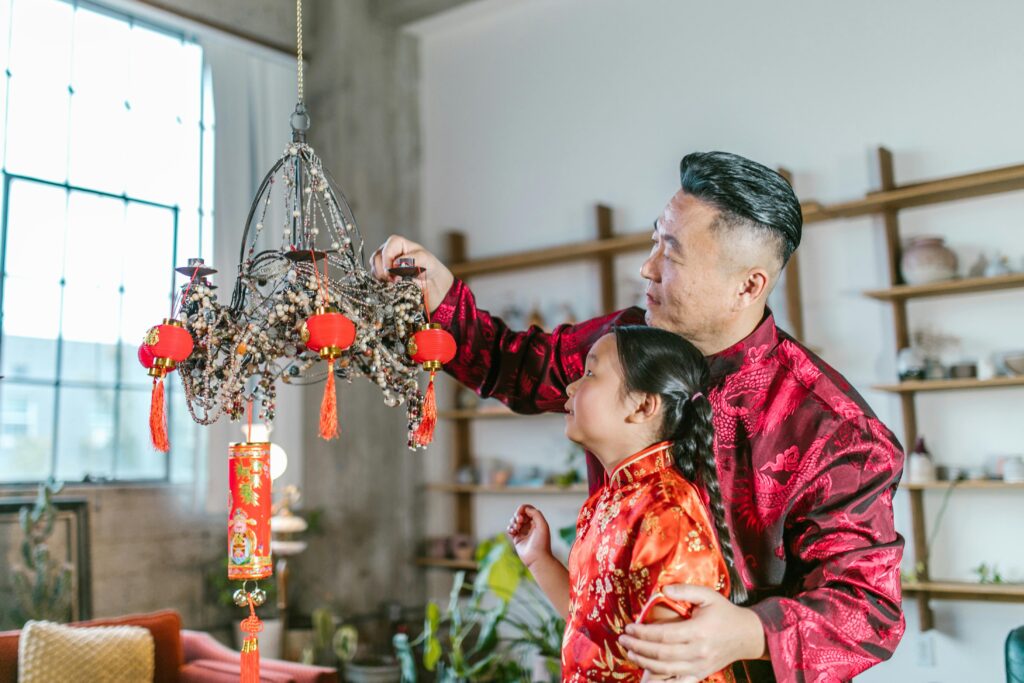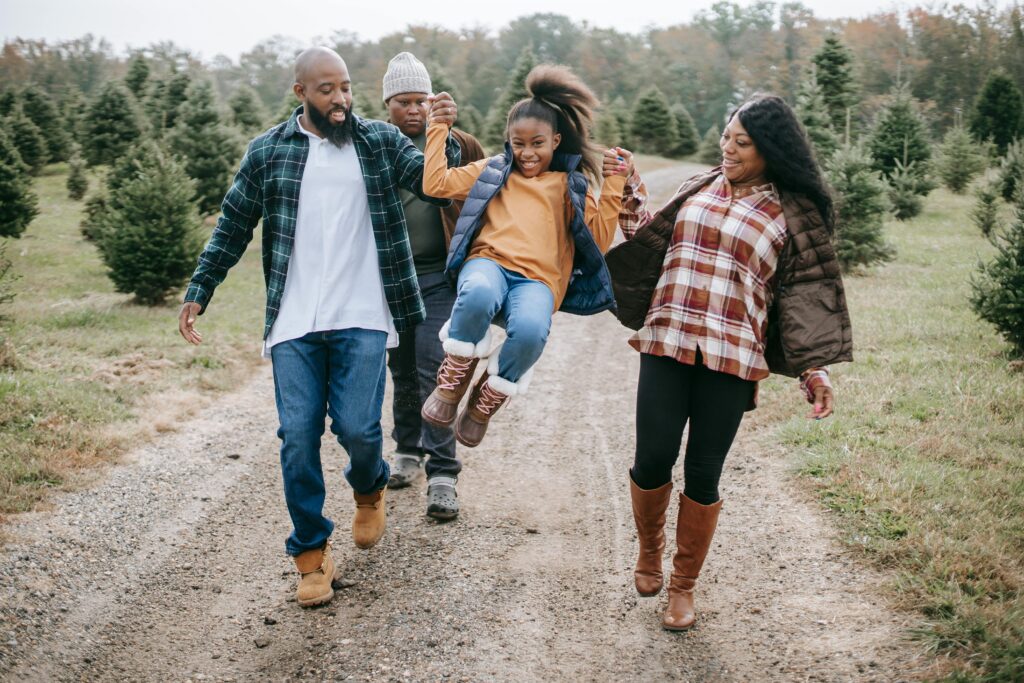Preserving Family History through Family Traditions
Discover the importance of preserving your family’s history and legacy through documenting traditions and stories.
Overview of Family Traditions
Family traditions are like threads that connect a family’s history and legacy. They are special treasures passed down from parents to children, linking the past, present, and future.

Traditions are important because they connect a family’s history and legacy. These traditions are special treasures that parents pass down to their children. They link the past, present, and future.
Whether it’s a yearly family gathering, a holiday meal, game night, or bedtime stories, these traditions create a feeling of belonging and connection. This feeling goes beyond time and distance.
Families pass down traditions to share their heritage and culture, creating a sense of pride and belonging. Keeping traditions helps families stay connected to their past and ensures their legacy lives on for future generations.
Why Preserve Family Traditions?
Keeping family traditions alive is important for passing down our identity through generations. It helps us remember who we are and where we come from.
Traditions are more than just rituals or customs. They bring us together and remind us of our past.
In a world that is constantly evolving and changing, holding onto these traditions becomes even more crucial. They serve as a constant reminder of who we are and where we come from, grounding us in our past while propelling us towards the future. So, let us cherish and honor these traditions, for they embody the essence of our family’s story, ensuring that we can continue to tell it for generations to come.
The Evolution of Family Traditions in Human Societies

Throughout human history, family traditions have played a pivotal role in shaping the fabric of society. From ancient civilizations to modern-day cultures, the concept of family has remained a foundational cornerstone of human existence. In the United States and other Western cultures, the concept of the family unit has evolved over time, reflecting shifting societal norms and values.
In the 20th century, the traditional nuclear family consisting of two parents and their children predominated in Western societies. However, as societal structures have evolved, so too have family dynamics. The concept of the extended family, encompassing a broader network of relatives beyond the nuclear unit, has gained prominence in recent decades. This evolution reflects the diverse array of family structures present in contemporary society, including single-parent households, blended families, and multigenerational households.
Strengthening Family Bonds through Shared Activities
In contemporary society, spending quality time together as a family is more important than ever. Amidst the hustle and bustle of daily life, carving out moments for shared activities fosters a sense of connection and belonging among family members. Whether it’s a game night filled with laughter and friendly competition or a leisurely family outing in the great outdoors, these shared experiences create lasting memories and strengthen familial bonds.
In Western cultures, the concept of the family extends beyond biological ties to encompass chosen family members and close-knit communities. This inclusive definition underscores the importance of fostering a sense of unity and solidarity among all members of the family, regardless of biological relation.
Embracing the Diversity of Family Traditions
As human societies continue to evolve, so too do the myriad expressions of family traditions. From cultural celebrations rooted in ancestral heritage to modern-day customs forged through shared experiences, family traditions encompass a rich tapestry of rituals and practices that reflect the diversity of human experience.
In the United States and other Western cultures, the concept of the family includes a broad spectrum of familial arrangements, ranging from traditional nuclear families to non-traditional family structures. This inclusive definition underscores the fluidity and adaptability of family traditions in the modern era, embracing the diverse array of familial bonds that unite us as a global community.
Challenges in Preserving Family Traditions
Families often face challenges in preserving traditions because of the fast-paced nature of modern lifestyles, which can sometimes overshadow the importance of holding onto the customs and rituals that define our family identity.
In addition, geographical distance can create barriers to maintaining traditions, as family members spread across different cities or even countries may find it difficult to come together for special occasions. Generational gaps also play a role, as younger family members may have different interests and priorities than their elders, leading to a disconnect in the continuation of certain traditions.
To address these challenges, families must find creative ways to adapt their traditions to fit into the current times while still preserving their essence and significance. This may involve incorporating modern elements into traditional practices, finding new ways to connect with family members who are far away, and actively involving all generations in the preservation of these cherished customs. By embracing change while honoring the past, families can ensure that their traditions remain relevant and meaningful for years to come.
Strategies for Preserving Family Traditions

Documenting family history is a crucial strategy for preserving traditions. By delving into the past through research, engaging in heartfelt interviews with elders to capture their memories and experiences, meticulously collecting and organizing precious photographs, and tracing the intricate branches of the family tree, families can ensure that their stories are not only preserved but passed down with accuracy and authenticity. These efforts serve as a tribute to the ancestors who shaped the family’s narrative, allowing future generations to connect with their roots and understand the legacy they inherit.
Celebrating rituals and customs in everyday life is a powerful way to keep family traditions alive. From the simple act of sharing a meal together to commemorating special occasions with unique customs passed down through generations, these practices create a sense of continuity and belonging within the family.
Moreover, creating new family traditions that resonate with current values and interests can further enrich the tapestry of family history, ensuring that the legacy continues to evolve and thrive. By incorporating cherished values and interests into family activities, traditions become more than just routines—they become meaningful expressions of love, connection, and shared experiences that bind the family together.
Save Stories to Share Them with Future Generations
At Meet Jane, families can embark on a heartfelt journey of preserving their stories through professional biographers who specialize in capturing the essence of each family’s unique history and traditions. These skilled storytellers conduct in-depth interviews with family members, carefully weaving together the threads of the past to create a narrative that honors and preserves the legacy of the family.
Families can ensure that these dedicated professionals document and bring to life their cherished memories and traditions in a way that resonates with future generations by entrusting their stories to them. Crafting these narratives with care and authenticity shows the richness of the family’s history, providing a tangible link to the past that can be passed down for years to come.
Through the act of saving and sharing these stories with future generations, families not only strengthen their bonds but also create a sense of continuity and connection that transcends time.
As each generation passes down these narratives, they provide comfort and support during difficult times, reminding every family member of their roots and the enduring legacy of their shared history. Ultimately, these stories become a treasured gift that binds the family together, fostering a sense of belonging and pride in their collective identity.
Preserve your family’s legacy with Meet Jane. Schedule a call today to start sharing your cherished stories with future generations. Together, let’s create a lasting connection through the power of storytelling.
